When I was invited to come aboard and help with Greater Auckland a few months ago (thanks to Patrick!), it was suggested it might be a good idea to write some sort of autobiographical post by way of an introduction.
This post isn’t quite that – although I’m sure I’lll get to it eventually. Instead, what I want to discuss here is something I think is really important to understand.
We all have the power to change things
After the election in October last year, I made a parliamentary petition calling for surface light rail – which you can actually still sign. It was already pretty clear that whatever form the new government took, they would scrap the tunnel-focused ALR project, and it was also pretty obvious they’d be going back to focusing on giant motorways.
But what I also knew is this: we need better public transport in our city.

Was I a certified expert in transport? No. Did I know much about light rail? As much as any person who’s interested in and likes trams and public transport. I thought they were cool, and given Wayne Brown was a fan, it seemed like there was an opportunity to do something about it.
I did worry about not knowing enough, but the most important question I asked myself was:
If I didn’t do something, who would?
And that set off the last nine months of my life where, after linking up with a great group of people, we advocated our hearts out in all manner of ways for surface light rail.
We might not have magically cured Simeon Brown’s road obsession, or found a spare billion dollars in the Mayor’s back pocket, but what I think we succeeded at was keeping the idea of light rail in Auckland alive, when it otherwise was set to be dead and buried. It was immensely fulfilling work that led me to all sorts of places and people, and I feel it will be important sooner than you might think.
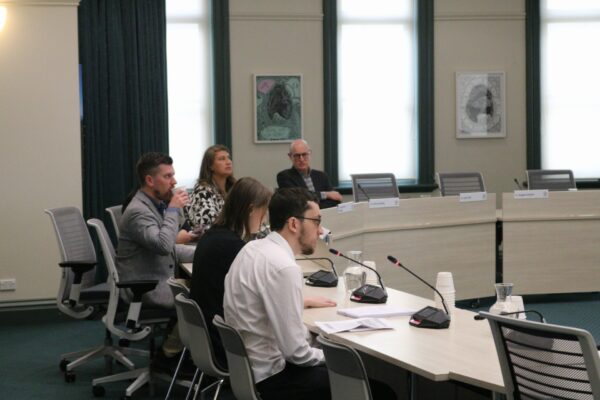
But I’m not special in this regard.
I just decided to do something and then started doing it. Anyone can do that. In fact, everybody can do something.
Everyone.
You don’t have to take just my word for it. Patrick said something similar in 2018, when he and Matt were interviewed on the Reinventing Transport podcast, and discussing how you might go about starting something like Greater Auckland. I’ve edited the quote slightly for clarity:
“…I would suggest starting with a real issue that you can grasp because you’re hoping to find your tribe online. And you can’t just put out a call, you’ve just got to start doing it…”
There’s a lot of wisdom in that sentence. And perhaps you have thought about doing something, say on a transport issue, especially given how cooked the government’s transport policy is, or really anything you might have concerns about.
But maybe you have some questions before you even get started. Like, what do you actually do? How can you achieve what you want?
Let me try to help unpack some of this.
Identify your goal… and then do something
What do you want to achieve? It needn’t be as huge as trying to save light rail. Maybe you’re someone who thinks it makes zero sense that it’s currently illegal for children to ride bikes on footpaths. Onehunga parent Shane Riddle thought so. Now they are doing something about it, and have made a parliamentary petition which already a few hundred people have signed.
Or maybe, like longtime reader Grant, you have an idea for how to improve Newmarket. So you write it down and send it to Greater Auckland, and now the idea is out there and being discussed, and this means someone could actually try to make it happen!
Whatever it is you care about, figure out what you want to see, get a vision in your mind, and just start doing something. Don’t worry about getting things perfect – it’s far more important to just start.
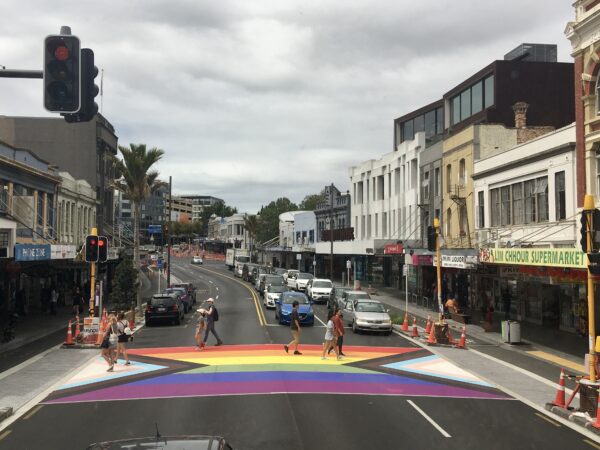
Lead with positivity and bring solutions
It’s good to know what your goal is and what you want changed, and it’s even more important to have an idea of the solution, a way to achieve the vision. The answer might be a law, or planning change. It might be a particular project or a series of projects.
You don’t have to have all the details worked out, but knowing what is needed to get to where you want to go, and having a scope of what’s needed, makes all the difference.
It’s genuinely amazing, the reaction people have when you come to them with tangible ideas and plausible solutions. Especially when you also bring a smile and positive attitude.
Caring about and having passion for something means that even if your solution isn’t perfect, people will want to listen and help.
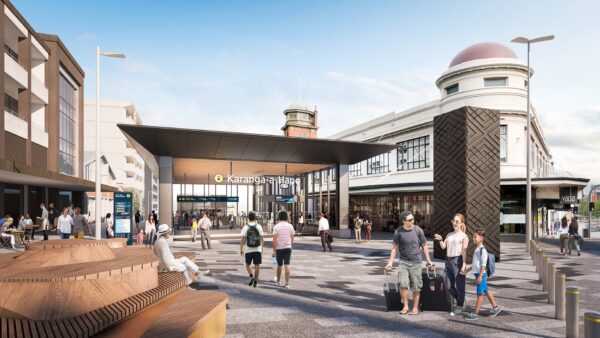
Work out where the decision-making happens
So you’ve gotten started. Next, you want to figure out what and who needs to change to ensure a pathway to success.
It’s really important to know where the decision-making power for your goal resides. It might be Auckland Transport, it might be your Local Board. Maybe it’s Council, or Parliament. It could very well be amongst your neighbours and local community. It’s not always clear until you have started, but at some point you will need to identify this.
Then figure out what needs to change and how you could do this.
Maybe you want a bike lane, or to close your street to rat-running? Let’s say you started with a petition outlining the problem, your goals, and your solution. Take this and start talking to all your neighbours, community groups, schools, local businesses, and invite them to sign on. Some people will want to do more than just sign, they’ll want to get involved. Gather your signatures and welcome your new allies. And then, go speak to the decision-makers.
Maybe there’s a consultation happening about a project in your community, and it’s something you want to see happen. Go and express your views! There’s a plethora of projects to have your say online about, and if you can, take the time to go along and express your views in person.
Local board meetings, consultation drop-in sessions, and council meetings are all good places to show up and speak up! Trust me, oftentimes all these people hear are complaints, so being positive and solution-based is a breath of fresh air.
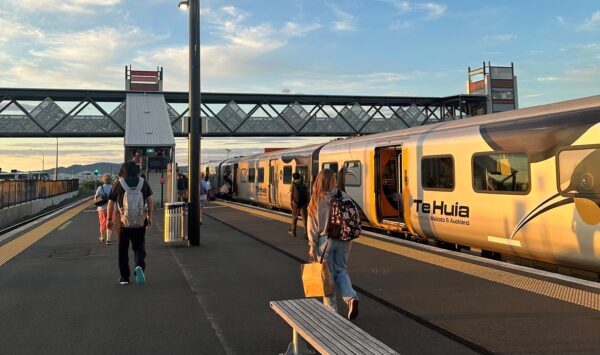
Find your friends (and they’ll find you)
To go back to, as Patrick put it, finding your tribe. Finding friends and allies is important, as no one does things alone. You could start with a call-out, but in fact what you will often find is that when you start by doing something, people will come to you and want to help.
Especially if you are positive, especially if you are passionate – but only if you are doing something. Friends and allies? They help. And the fun thing about who you meet – odds are you’ll build meaningful connections and relationships that will enrich your life and bring you to places you never would expect.

Another good thing about finding your allies: when you’re working to make change happen, it is vital to be sustainable.
Sometimes change takes time, and it’s important not to burn yourself out. Be aware of what you can contribute, and what your limits are. Maybe it’s the time you put in, maybe it’s finances. Whatever it is, ensure you are taking care of yourself. It’s very easy to get sucked into something to an unsustainable degree.
But don’t let this put you off! Being aware of it just means you can do things in a healthy way. And the good thing when you find your friends and allies? Just like the old saying:
Many hands make light work.
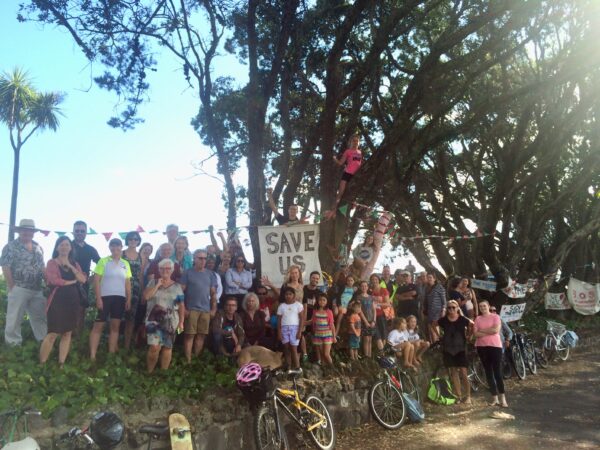
Reach out – you’ll be surprised!
You never know who might want to help. It might be your neighbours. It might be local businesses. Maybe it’s existing advocacy groups, and likely it will be some politicians – and not necessarily the ones you first expect.
Put aside your prior assumptions. Don’t assume you already know what someone might think about what you’re doing; chances are they just haven’t given it much thought. Or haven’t been asked.
This is especially true when it comes to the political side. Regardless of your own opinions, reach out to your local board, your councillor or MP, whatever their stripe. Honestly, odds are you will be surprised what people’s views are, especially the more local you go.
While not everyone will support what you want to do, if you assume without asking then there is a far higher chance of that being the case. So whatever you think, be positive and give it a shot.
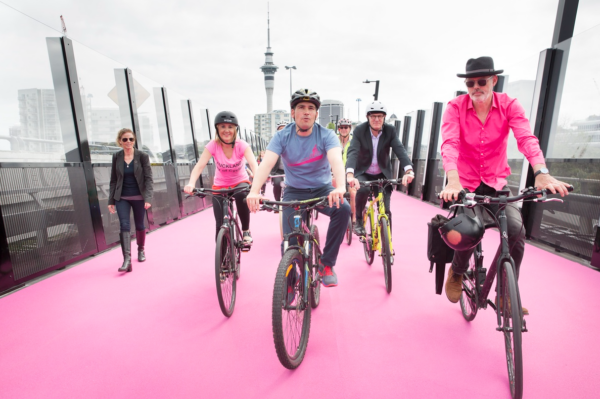
Just do it…
If you haven’t already worked it out, this is the most important piece of advice. Hopefully the rest helps give a framework and a starting place. Nothing will be perfect. Mistakes will happen. Nobody knows everything – and you will learn new things and more about what you have to do to succeed. As you go along, you’ll also figure out more about yourself and your skills, and you’ll meet wonderful people with knowledge and skills you don’t have.
But none of this will happen until you start doing.
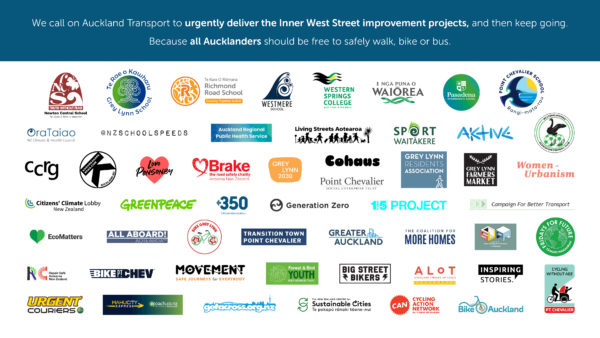
…because you can make a difference
I’m sure everyone reading this post has something they want to change.
Maybe it’s an issue that’s been mentioned here on Greater Auckland. Maybe you’ve visited another city or country and experienced something that you wished we could have here. Maybe it’s an idea you’ve had while talking at the dinner table with friends and family. Maybe you’ve just been stuck in one too many traffic jams.
We all have things we think would be great for Auckland, or our neighbourhood, or for our friends or family. Whatever, whomever, and wherever you care about.
You have the power to change things. So why not do something about it?
Because if you don’t, who will?
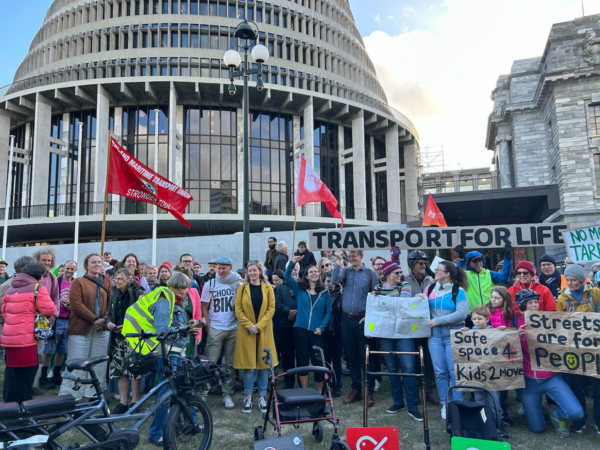

 Processing...
Processing...
I was looking at the painting at the top (town hall etc) and thinking, the local skaters would be upset that the Wakefield St double stair set landing has turned into a stream. Then I zoomed and noticed there is a skater depicted! Good to see the artist respecting everyone’s usage patterns of the central city.
I’m much more concerned that, in this utopian future, the derelict Sky City cinema building is still there
You’ll love the multi-level pool under there. Major diving attraction.
The other thing I noticed from those images is how desperately Te Ara I Whiti needs a new coat of pink paint
Yes! It was repainted maybe 2 years ago. I wonder what the wear is from. UV, fumes, or bicycle tyres?
Lovely post, thanks Connor. Yes, many hands make light work. And we’re going to need more hands, given the government’s departure from any attempt at following evidence.
Chris Dews’ paintings are so inspiring. He’s open to commissions, too. At least he was when I commissioned one, which now inspires me every day.
The Beresford Entrance only happened because the government changed.
Hopeful, this is the underlying message I interpret. We must remain hopeful that we will see positive change in our city, and in our society.
Transport for all is an important part of this, as is intensifying living through apartment construction.
We who read this blog are generally aligned in our studied, educated opinions, and this allows this blog to remain a positive force in our cityscape.
Kia kaha tatou
bah humbug
Dear Connor, I enjoyed reading your article
I would like to get in touch with you about an alternative affordable AWHC plan which I recently submitted to a Director of the Board of the Infrastructure Commission of NZ. I would like to share with you this plan and discuss possibilities to have this plan getting accepted and implemented.
Best Regards, Jan Mulder
Well said.
Kia ora Connor, love this, and absolutely endorse this.
My first engagement with local government was assisting with a campaign to keep public transport subsidies for students, those with disabilities, and seniors, back in 1998, and a big lesson from that was that often you do know more about a thing you care about than the generalist politicians around most tables. Now that I’m a politician I agree with that from the other end!
I’m really happy to meet up with folks who are wanting to understand how to make change in Auckland in ways that intersect with local government – I always learn something too. (Just be aware my diary is pretty packed so might need to find a time a month or so from when you get in touch!)
Most of the changes we seek to make, to make better streets (neighbourhoods, cities, regions, world!), will take time, and there’s no harm in laying foundations for change now, whether that’s building relationships, sharing knowledge, or planning for the future, despite a less receptive central government environment for a lot of this work. Work in this space is never wasted imho – even when we lose we have often built networks and skills for a win on something else or at a later date.
Ka kite ano
Julie Fairey (she/ her/ ia)
Ngā Kaikaunihera ā-rohe – Albert-Eden-Puketāpapa | Ward Councillor – Albert-Eden-Puketāpapa
Thank you for engaging with this post. And my thanks to Connor for writing it.
Absolutely, couldn’t agree more!
Great post. I just needed that encouragement, was wondering what to do next last night. Thanks for the Newmarket post shout-out.
Very important post, ngā mihi Connor. Whilst I know we are often frustrated that our voices are seemingly not heard, it is vital that we keep speaking up in whatever way we are able to.
And with that in mind can I ask that anyone who is interested in how we move around in the Waitākere Ranges area ( and how else we protect our Climate) considers submitting on the local boards draft Climate Action Plan https://akhaveyoursay.aucklandcouncil.govt.nz/waitakere-ranges-climate-action-plan.
Advocacy can indeed be very rewarding. I did over 10 years of it, including leading one of the examples Connor gave. I started because I read an article in the Herald from a commenter who I normally liked, but who was very dismissive about bikes. So I thought “hey, I gotta do something about how Aucklanders seem to think bikes are something weird”. In retrospect on the more than a decade that followed, the two things I found most challenging were that for some people, any minor reduction of car dominance was unthinkable, and that for every win, you have five or more failures where you achieved nothing or not enough. So all the more important to celebrate the wins and work with like-minded companions, or you burn out!
In contrast, Don probably thinks the Automobile Association are doing God’s work.
Comment deleted for not adding value.
I have been involved in advocacy for a while. I struggled to fit it in with my full time job and would be very interested to hear any advice on this.
Sorry I should say I thought this was brilliant and inspiring!